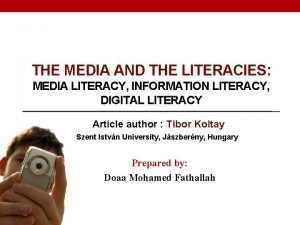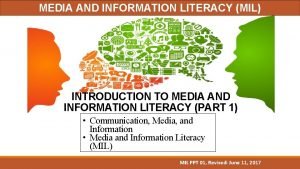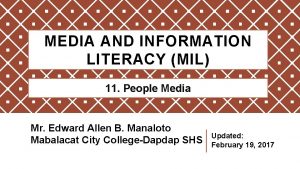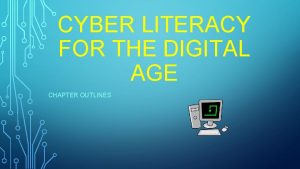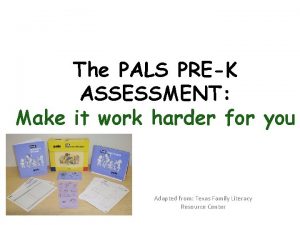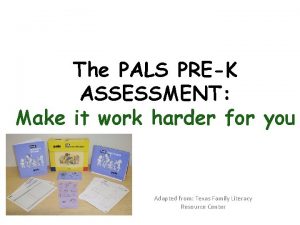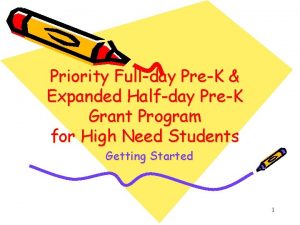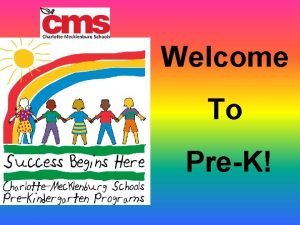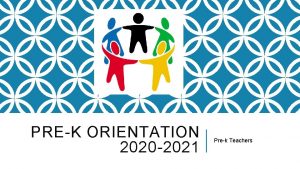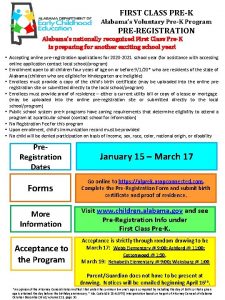THE SCIENCE OF LEARNING PREK AND EARLY LITERACY






- Slides: 6

THE SCIENCE OF LEARNING: PRE-K AND EARLY LITERACY Timothy Shanahan University of Illinois at Chicago www. shanahanonliteracy. com

How to improve reading achievement? ■ There are only three things that have ever been found by research to consistently improve reading achievement ■ Policies that support increases or improvements in these three things have the best chance of success

1. Increase the amount of instruction ■ Amount of teaching students receive is a major determinant of learning ■ Policies that support increased instruction (e. g. , preschool, full-day kindergarten, extended school year, summer school, afterschool programs) are usually successful ■ However, the key is academic learning time (ALT) not allotted time, so simply buying more instruction will not necessarily be successful

2. Emphasize key aspects of curriculum ■ Time is a dosage not a variable ■ Research finds causal connection between teaching these components and improved reading (phonemic awareness, phonics, oral reading fluency, vocabulary, reading comprehension, writing) ■ Policies that increase instruction in these components tend to lead to improvements in reading achievement

3. Quality of instruction ■ Not all instruction is equal ■ Some instruction is more efficient or more effective ■ Quality of instruction affects learning, so policies aimed at improving teacher education and professional development, or aimed at providing supportive instructional materials and supervision have potential for improving achievement ■ There are quality issues specific to the curriculum components mentioned as well as to more general quality features

Final thoughts ■ According to the National Assessment, American schools successfully improved reading achievement for young children during the period 1992 -2006 (since then it has languished) ■ Reading achievement for middle and high school students has not risen as a result ■ Improving the reading achievement of young students alone has not been sufficient to produce a more literate population ■ Policies not only are needed to promote improved primary grade reading achievement, but that will support/encourage/require teachers of older students to build on this early success
